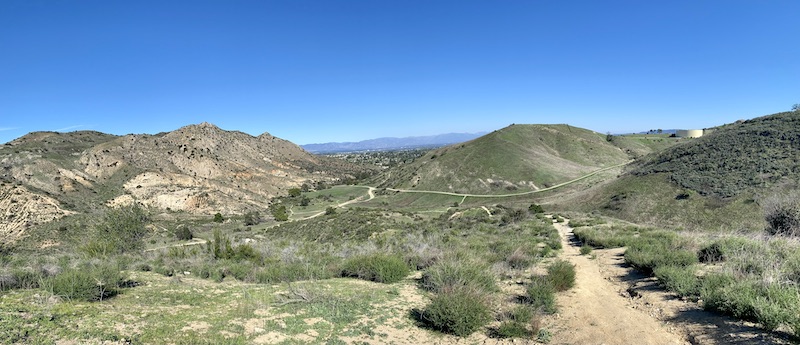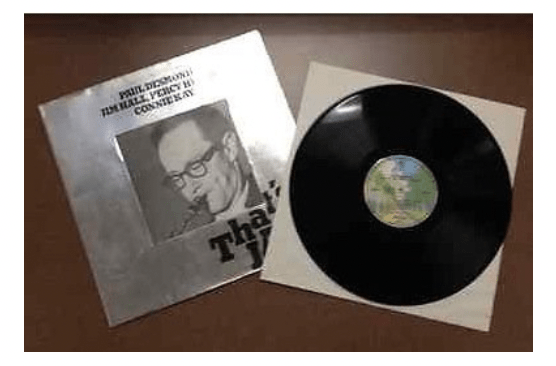Today was another exceptionally clear day. It was also an uneventful day save for the lunch get-together with my siblings. That started the day off nicely. I got to hear about what they were reading and about how their book clubs worked, in terms of what kinds of things they talked about.
There was also some chat about our upcoming family reunion in July. Eureka! continues to have Lady Face Blind Ambition for $4 so I couldn’t resist having one (and then another one). These kinds of family outings don’t last too long, no one’s prone to linger or talk about anything too amusing, so I was on my way home by 1:30, just in time for a quick hike.
Like I said, it was very clear day. Lots of folks were heading out at once so I decided to take a connector trail towards El Escorpion. Once there, I picked up a trail that I was pretty sure would link back to the Victory side. I was right, but the last third of the trail was brutally steep. Had it not been for the light, cooling breeze it may have been too much. But I made it and then found my way to Bible Rock before heading back to the main trail and my car.
Those two beers were not my friend on this hike, but I was happy to have made it out for a couple hours.
I’m getting a little antsy about the book. It’s feeling ripe and ready to publish. I’m ready to move on but circumstances won’t let me quite yet. It’s also a time of anticipation. There are always technical issues, most commonly with the EPUB or MOBI files used for the the Amazon Kindle Version.
It’s rather like the feeling of dreading impending traffic that you know you’ll hit, simply because you’re in a hurry. It makes you wonder why you’re in a hurry and then you remember.
There’s time enough but none to waste.
Tonight’s writing soundtrack is another LP. This time it’s an oldie and a scratchy one at that. It’s Paul Desmond’s That’s Jazz. It’s from 1961 and it’s pretty much the epitome of California Cool. Desmond’s playing is impeccable as always. There’s never been anyone better at this kind of stuff. His tone and articulation were effortless and he was rhythmically faultless and nimble to boot. Still, in some strange kind of way this LP reminds me that I really don’t much care for jazz anymore. The best jazz was universally played in the past and if you can’t find a reason to look ahead toward even the possibility of new and better days, a genre can really become mundane. It’s always amazing to me that these straight-laced looking guys like Desmond and Bill Evan were relentless self-abusers, Desmond with booze while Evans favored heroin and later cocaine. It makes their music perfect time capsules of another era when jazz was perfected and before its inevitable entropic decline.
Thanks for reading.


